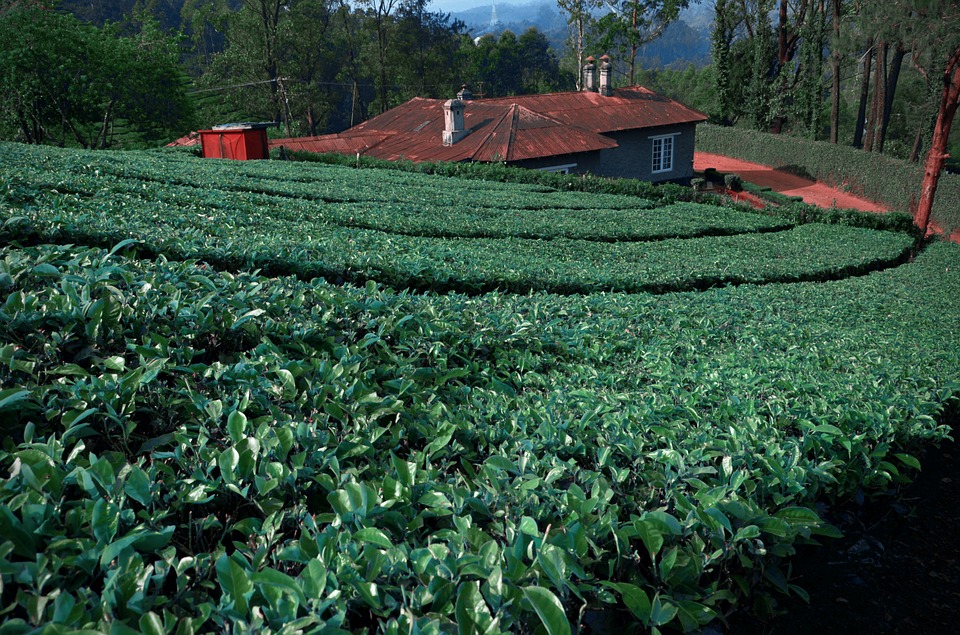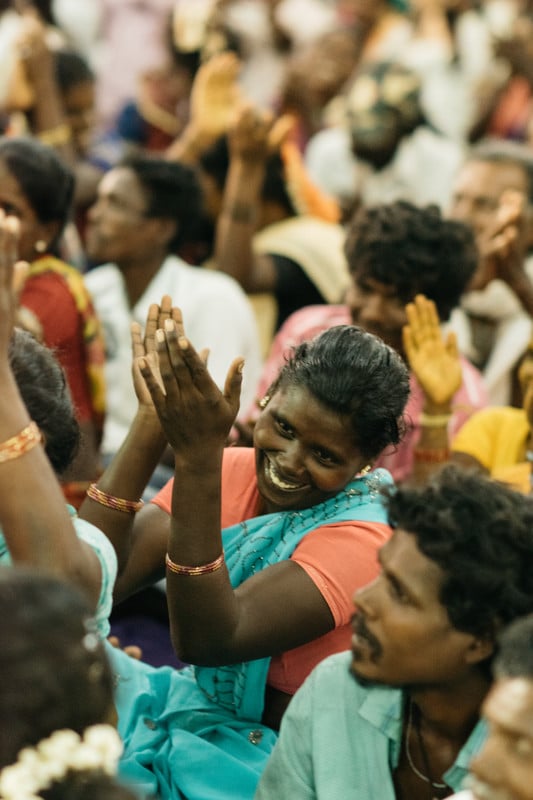
This blog is part of 10 Weeks of Action: Demanding funding and protection for grassroots justice defenders by calling on our community to sign the #JusticeForAll petition. Each week, we will spotlight how access to justice is critical to the advancement of different thematic issues. The theme for Week 8 is Modern Day Slavery.
Uniquely eloquent and effective advocates of “Justice for All” can be found in the form of grassroots justice defenders in South India, where survivors of bonded labour slavery have formed a registered society to advocate for an end to bonded labour, to assist in the identification and rescue of others still trapped in servitude, to secure resources for their communities, and to serve as local educators and watchdogs to end exploitation in their midst. Released Bonded Labourers Associations (RBLAs) have been registered in five districts in the state of Tamil Nadu: Tiruvallur, Kancheepuram, Vellore, Thiruvanamalai and Villupuram and include over 1,000 members.
The RBLAs are championed by survivors of bonded labour, many of whom had been part of International Justice Mission’s aftercare program. IJM helps authorities intervene to rescue and rehabilitate victims trapped in bonded labour. The chains are first broken with a piece of paper—a release certificate issued by the government that cancels any alleged debt owed to the owner and serves as legal protection. IJM social workers then accompany survivors back to their home villages, and a two-year aftercare program begins. It is customized to the needs of each family but includes a Freedom Training and community meetings where survivors gather together to learn with and from one another, plus home visits from IJM social workers to set financial goals, address mental well-being, help survivors find jobs, access government benefits, and enroll children in school. With the creation of the Released Bonded Labourere Associations, IJM connects survivors to the RBLA in their district so they can plug into this strong network. The members elect their own representatives, and IJM provides leadership training and advocacy support.
Bonded labor is illegal and punishable with imprisonment and fines under the Indian Penal Code and the Bonded Labour System (Abolition) Act, 1976. In cases where laborers belong to scheduled castes and tribes, the Scheduled Castes and the Scheduled Tribes (Prevention of Atrocities) Act, 1989, may provide more serious penalties. Despite these laws, bonded labor – a violent and coercive form of human trafficking – is ubiquitous in India, overwhelmingly affecting the poorest and lowest castes. Those who commit bonded labor offenses do so with almost total impunity.

IJM PHOTO FROM A RBLA INDUCTION CEREMONY IN CHENNAI, 2017
Estimates of the extent of this form of modern slavery in India range from 13.3 to 14.7 million victims. Owners of brick kilns, rice mills, textile factories and rock quarries intentionally coerce poor and financially desperate victims into bondage using cash advances. Because there are few other viable and sustainable livelihood options throughout many areas of India, impoverished individuals are left with few choices but to accept the cash advance and the subsequent bondage.
Frequently transported hundreds or even thousands of miles from their home villages, labourers are trapped in factories, kilns, and farms, bound by their debts through perceived social or contractual obligations as well as violence and fear. These debts are often passed down through the generations, such that children and grandchildren, who have never taken a debt themselves, are forced to work off the debt of those before them. Owners refuse to pay the victims the legal minimum wage, force them to work long hours in harsh conditions, and deprive them of their freedom of employment and movement. They further control their victims through verbal, physical, and sexual abuse. Owners typically belong to higher castes and enjoy disproportionate favor and influence in the local community, especially among local law enforcement and government officials.
The Released Bonded Labourers Associations make an inestimable contribution to helping reintegrate newly released men, women and children into their home communities, which is essential for the restoration of people who may have been enslaved their entire lives. The RBLAs, who have received training and support from International Justice Mission, the Madras School of Social Work, the Foundation for Sustainable Development (a grassroots association of scheduled tribes and castes) and others, help newly-released labourers to secure livelihood opportunities, enroll children in school, and link their communities to government services.
RBLA members are playing a crucial role as well in identifying other labourers being held in illegal bondage and advocating for their release. One such case occurred last September, when RBLA President Gopi in Kanchipuram District coordinated a successful operation with local authorities to free 8 people from a rice mill, including 4 young children. In addition to bringing the families to safety, the RBLA and local authorities coordinated the resources they needed to thrive: urgent medical care, warm meals, release certifications, rehabilitation funds and safe transport back to their home village. At the same time, Government officials filed charges against the rice mill owner and formally arrested him.
The RBLA continues to raise a powerful collective voice; they held their first press conference on February 9, 2018 – the 42nd anniversary since the passing of the Bonded Labour System Abolition Act. They highlighted their personal experience of bonded labour and called for effective enforcement of the law. With their firsthand knowledge of bonded labour slavery —from the schemes used to trap vulnerable people, to the severity and range of abuse that comes with a life lived in bonded servitude — the RBLA members are a powerful voice in India demanding an end to this form of modern slavery.
Holly J. Burkhalter is the Senior Advisor for Justice System Transformation at International Justice Mission.
